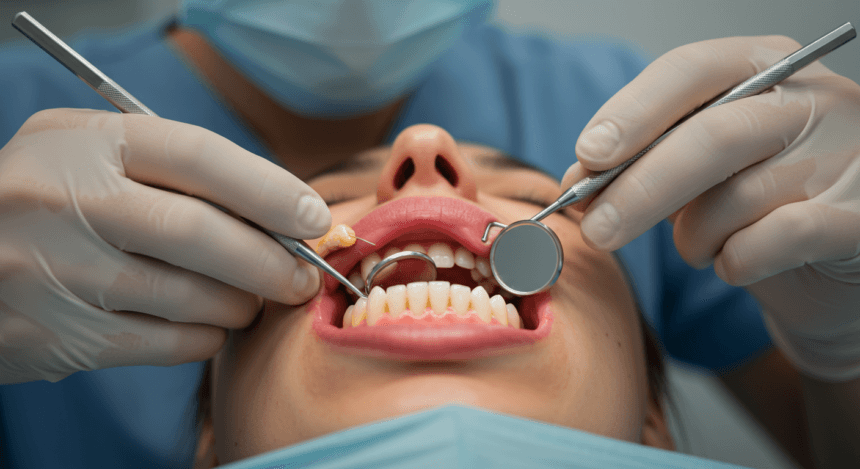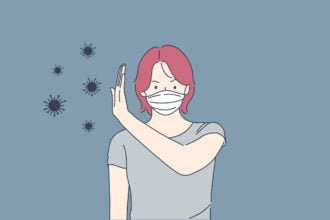Treatment of gum diseases is important to be on par with good oral health and to avoid serious complications. It may lead to the loss of teeth, bad breath constantly, and can even increase the risk for systemic conditions such as heart disease and diabetes if left untreated. Early treatment reduces inflammation, protects the gums and bones that support the teeth, and improves overall health. Regular dental checkups and proper hygiene are key to effective prevention and management of gum disease.
- What Causes Periodontal Disease?
- Can Gingivitis Turn into Periodontal Disease?
- Is Periodontal Disease Curable?
- What Are the Main Symptoms of Periodontal Disease?
- How is Periodontal Disease Treated?
- Does Smoking Affect Periodontal Disease?
- What Role Does Diet Play in Gum Health?
- Is Periodontal Disease Genetic?
- Can Periodontal Disease Cause Tooth Loss?
- How Often Should I See a Dentist If I Have Periodontal Disease?
Periodontal disease does not go away on its own, but with proper treatment and oral hygiene, it can be managed and prevented from worsening. Without intervention, the condition can lead to severe complications, including tooth loss and systemic health issues.
Periodontal disease is widespread, particularly among adults. According to a study by the British Society of Periodontology, around 45% of adults in the UK suffer from some form of gum disease, with 10% experiencing severe periodontitis. Regular dental check-ups are essential for early detection and management. Sadly, this study found that many people don’t know much about it.
“Patients thought education on risks associated with poor oral health and product recommendations were most likely, and daily reminders least likely, to improve compliance with oral health advice (OHA). Also, 40% of dentists thought their patients were relatively unaware of the importance of gingival health, 76.9% of their patient-base had gingivitis, and 96% give OHA to these patients but only 30% thought this effected improvement. The most useful tools for improving oral health were better patient knowledge of the consequences and one-to-one instruction,” the authors write.
What Causes Periodontal Disease?
Periodontal disease is caused by the buildup of plaque and bacteria along the gumline. Over time, this leads to inflammation, infection and the destruction of gum tissue and bone. Poor oral hygiene, smoking and underlying health conditions such as diabetes can increase the risk of developing periodontal disease.
Other factors include hormonal changes, stress, and medications that can contribute to the development of periodontal disease. Pregnancy, menopause, and puberty may make the gums more sensitive and susceptible to infection. Medications that reduce saliva can lead to dry mouth, allowing bacteria to thrive and cause gum disease.
Can Gingivitis Turn into Periodontal Disease?
Yes, untreated gingivitis can progress into periodontal disease. Gingivitis, the earliest stage of gum disease, is reversible with proper brushing, flossing and professional cleanings. However, once the disease advances into periodontitis, the damage becomes permanent and requires specialised treatment.
Is Periodontal Disease Curable?
While periodontal disease cannot be completely cured once it reaches an advanced stage, it can be effectively managed. Treatments such as deep cleaning, antibiotics and, in severe cases, surgical intervention can help control the infection and prevent further damage.
What Are the Main Symptoms of Periodontal Disease?
Common symptoms include red, swollen or bleeding gums, persistent bad breath, receding gums and loose teeth. If left untreated, the disease can cause significant damage to the structures supporting the teeth, leading to tooth loss.
In extreme cases, research has linked periodontal disease to various systemic conditions including heart disease, diabetes and respiratory infections. Studies indicate that individuals with severe gum disease have a 2-3 times higher risk of developing cardiovascular complications.
How is Periodontal Disease Treated?
The mode of treatment mainly depends on the disease’s severity. Mild forms are treated with the reinforcement of good oral hygiene and professional cleaning, while serious stages require deep cleaning, medications, or surgery such as gum grafts or even pocket reduction surgery.
Good oral hygiene has an important role in preventing periodontal disease. That means brushing at least twice a day, flossing once each day, and using antibacterial mouthwash can help in eliminating plaque and bacteria. Another important feature of periodontal disease prevention is regular dental visits.
Does Smoking Affect Periodontal Disease?
Smoking significantly increases the risk of periodontal disease and makes treatment less effective. Smokers are more likely to develop severe gum disease, and they have a slower healing response compared to non-smokers. Quitting smoking can improve gum health and treatment outcomes.
What Role Does Diet Play in Gum Health?
A balanced diet rich in vitamins and minerals, particularly vitamin C and calcium, can support gum health and reduce inflammation. Avoiding sugary foods and drinks can help prevent plaque buildup, reducing the risk of gum disease.
Is Periodontal Disease Genetic?
Genetics can play a role in an individual’s susceptibility to periodontal disease. If you have a family history of gum disease, you may be at a higher risk and should take extra precautions with your oral hygiene routine.
Can Periodontal Disease Cause Tooth Loss?
Yes, advanced periodontal disease can lead to tooth loss if not properly managed. The infection weakens the structures supporting the teeth, making them loose and eventually leading to extraction if treatment is not sought in time.
How Often Should I See a Dentist If I Have Periodontal Disease?
If you have been diagnosed with periodontal disease, your dentist may recommend more frequent visits, typically every three to four months. These check-ups help monitor the condition and provide professional cleanings to prevent further progression.
The Bottom Line
Periodontal disease won’t disappear independently; it is controllable with proper treatment and good oral habits. Regular dental visits, an effective oral hygiene routine, and lifestyle changes will prevent the progression of the disease and protect overall health.










